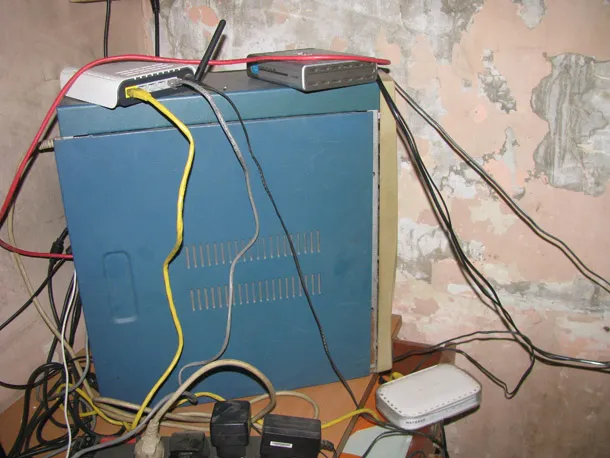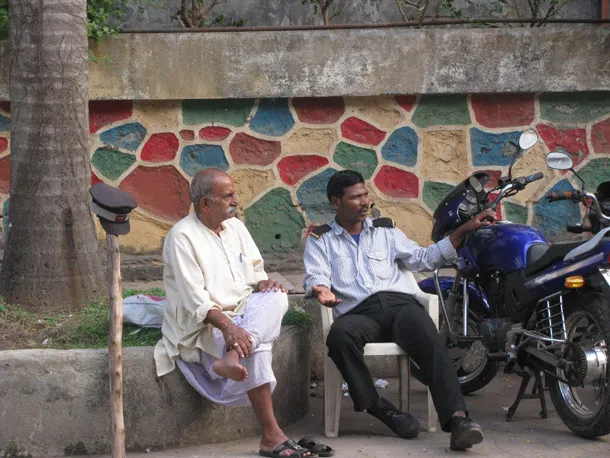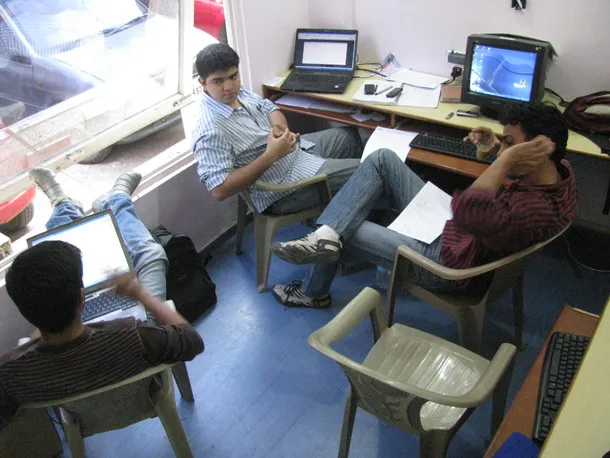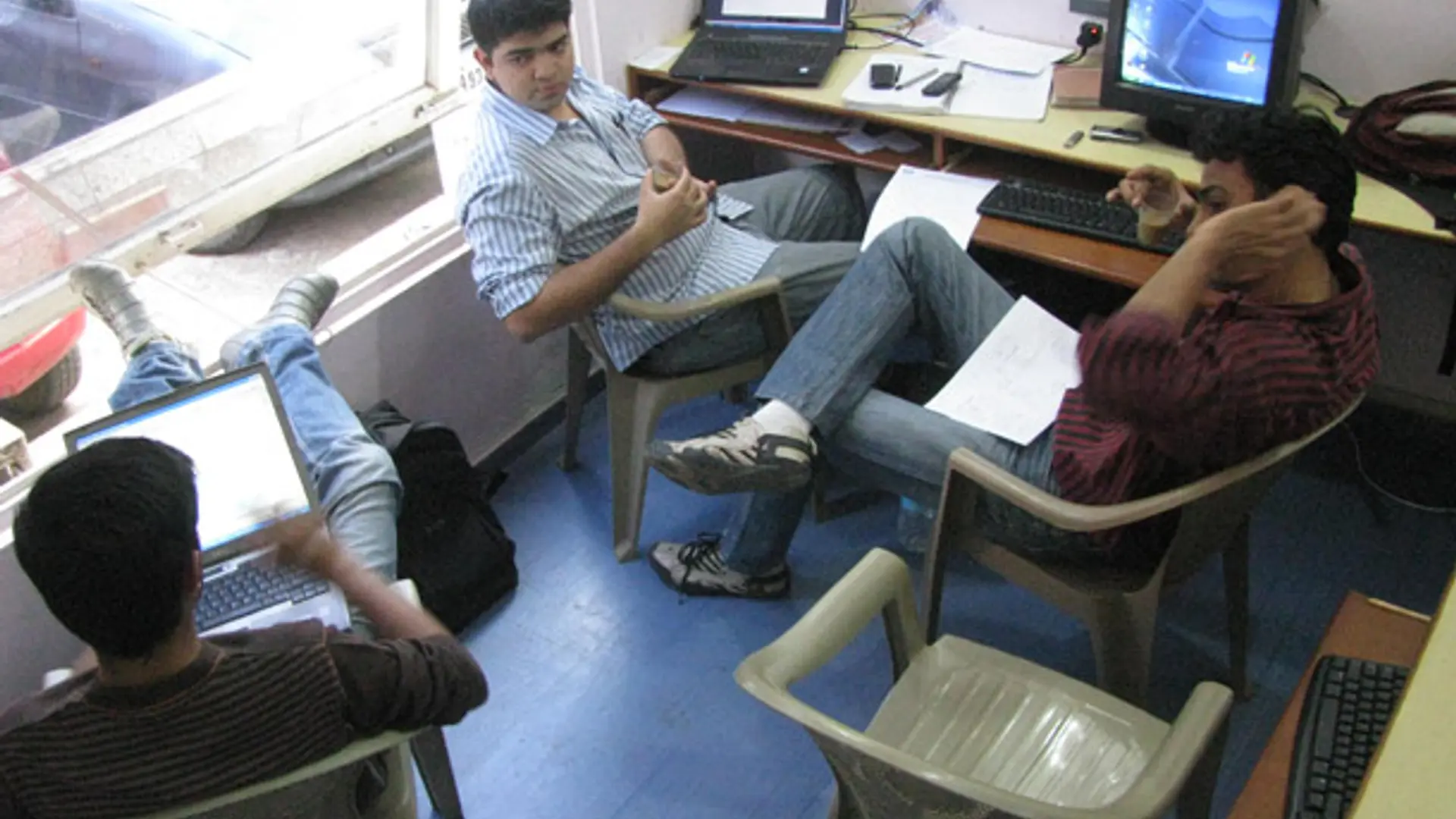Starting up? Here's a Dummies Guide On How You Should Setup an Office Space
Starting up takes a lot, and while we are at it, things within us matter the most. However, while building a startup block by block, a lot of logistics come to play as well. Over the last half decade, I have had to setup as many as 4 different offices and a couple of shared spaces as well. I would take this opportunity to share some learning’s about getting started with an office space for your startup.
A) Why
Before we discuss getting an office, lets discuss why one needs to have an office. Far too many people I meet try to quit a job and work from home. While working from home works, it comes with serious drawbacks. First and foremost, team building doesn't happen at home. You may want to work alone for a while and get to a prototype stage, but unless you can be super disciplined and the environment around you is conducive, working from home is a hard discipline to maintain.
With no one to report into, no factor to motivate or dictate deadlines, the pace and quality of work dips. Having a routine of stepping out for work helps your productivity levels tremendously. At the same time it keeps you away from a famous Hindi saying "khali dimak, shaitaan ka ghar" (An idle mind is a Devils workshop)
Having a professional setup around you also motivates you to achieve more, instead of getting distracted by short-term goals. I have seen many talented entrepreneurs waste time trying to freelance; make some quick bucks, instead of building an enterprise. When at a startup, your surroundings count a lot. TEAM = Together, everyone, achieves, more.
B) But I don't need an office, yet
If you are looking at creating a business large enough, you sure need an office, people to work with you and infrastructure to support it all. But things often start slow and you might not need a full-fledged office from day 1. Having been on the same boat, a very effective way of getting around is to get into a co-working space or share an office space with an existing entrepreneur. Co-working spaces are few in Mumbai, the best bet is to catch up with fellow startups at events like Startup Saturday and try to get a seat for you.
With capable and enterprising folks around you, you are bound to be more effective at your work as well. Our current office for PriceBaba is a small 4 seater cabin that has been lent out at a massive discount to us by a successful entrepreneur. It pays to be in company of good people and I cannot stress the importance of having a good office space, especially for web businesses where creative minds create new stuff everyday.
c) Okay, I get the point. So how do I start with an office space?
Now that’s more like it ;)
You need to compute your requirements, find a place, rent it, set it up and move in. Simple. Depending on your business, choose a place. For our offices, we didn't mind going a bit north in Mumbai (north gets cheaper) but we wanted the space to be accessible easily, so always remained near a railway station. At the same time I always balanced it such that the travel time from my home to office isn't more than 30 mins, best of course is a walkable distance.
d) Common mistakes! Where to save money, where not

If you are a web startup or for that matter any business that would rely on a internet connection, be it for maintaining a website or just hell lot of emails, good Internet connectivity is a must. It is heart breaking to see so many main city locations in Mumbai not getting good Internet connectivity. Take an office anywhere, check Internet availability first!
Of course, choose places that have some furniture before hand. In fact out of the 10 offices I have had in the last 10 years, most had some or the other furniture in place before hand. Having a pre installed air conditioner is a big plus. Depending on the city, weather and budget, you can strike off an Air conditioner from your list, given Mumbai humidity, we sure need it.
Do remember, the biggest cost of having an air conditioner isn’t the machine itself, it is the electricity bill. In our last office with 8 people working, the electricity bill could vary from Rs 1200 to Rs 5000+ depending on the use of air conditioner. We made a mistake of picking up a used air conditioner and ended up paying more on electricity than the AC unit itself.
A few other things to look at are cleanliness, access and built of the location. Availability of good washrooms and noise levels. If there is going to be too much traffic noise coming in from a nearby road, you might well end up giving up in a week’s time. Leakages during monsoon is also something you must check for.
You would most probably end up paying someone for cleaning the office space and tea / coffee / snacks at office together add up to a lot. Do factor these costs.
The L Factor:
The L factor comes in most cases. The Landlord. We have had our share of troubles ranging from restrictions of working overnight at the office space, or petty accounting issues, or too intrusive nature of the landlord. You would need to put up with it.
As a startup you don't have much muscle power against the world. You want to save your energy for the big challenges and not the small ones. At the same time, you need to understand that there are people who can afford more than you and are better placed to do things than what you can afford. You need to respect the fact that someone has lent his property to you and that they OWN the space you work in.
With not much cash to burn, the odds are by default against you. Always keep the landlord happy, some would be good, some nasty, you would need to balance them. Be humble and polite, care for the people around you (no, not just employees I mean) and you shall sail through. We have had good relationships with watchmen, postman and other regular folks in our neighborhood and all of them have helped us at some point or other. A few warm smiles and pleasantries exchanged doesn't do bad to a stressful business rut either.

E) Some costing
Taking an experience of what things we had to take care of when building office spaces, here is a quick list
i) The space
Getting a decent space in Mumbai Suburbs for a team of 4-5 (100 – 150 sqft) can cost anywhere from Rs 6000 to 10,000. Have seen people paying lot more than that, but typically with all variables paid, you should be targeting Rs 12,000 or less. Deposit could range from Rs 15,000 to Rs 25,000.
A larger office that a friend recently rented again in Mumbai suburbs (Andheri to be precise) can seat 15 people (350 sqft open space) and costs Rs 25,000 rent. The deposit for the same was Rs 75000 (negotiation started at Rs 1lac).
Pure commercial complexes are mostly hard to find in a startup budget. Parking space for bikes and four wheelers might be a problem. Maintaining good relations with the security guards can really help.

ii) Desks & Chairs
You typically need minimum storage space and some work desks. We always preferred a coated plank of wood against the wall that can support laptops / desktops. A tray for keyboard isn't actually required, you can have it above the desk it self. A desk space for 7 people costed us Rs 15,000.
Where we burn a lot of money is chairs. Each chair in our office costs a bit over Rs 5,000 and we do not discriminate or save any money on that. Given the increasing usage of computers in our lives, ergonomics is given importance. We use a brand called Merryfair, which specializes in ergonomic chairs.
You may find cheaper chairs for Rs 2000 or less as well. The minimum you should ensure is a good backrest. Chairs that arch-back aren’t the best for backbone support and we would recommend avoiding them. Health = Wealth = Survival fuel!
We also bought several plastic chairs costing Rs 350-400 for visitors or temporary / extra / casual sitting.
iii) Lighting and electrical
Typically any place you rent would have tube lights and fans. Getting a few plug points and a spike guard is the only cost. Typically around Rs 1000 with a branded spike guard.
Cost shoots up if you need to do extra wiring for air conditioner or install fans & lights. On spike guards, do remember that surge protection is a real need. We invest a bit more on this, but ensure it is not just a extension, but provides serious protection.
iv) Computers & Systems
In many cases you would expect people to walk in with their laptops, but there might be times when you would need to purchase some infrastructure. A computer comes as the most obvious purchase to me. Spending a bomb on a new laptop or desktop isn't the smartest thing to do.
My recommendation is to pick up a used desktop computer with a new LCD monitor. A decent Dual-Core configuration with 1/2GB RAM, WIFi and basic I/O devices costs roughly INR 4000 - 5000. Add a new LCD worth Rs 4000+4500 and you have a good system ready. At times you may want to just replace the Hard Disk with a new one and that might end up taking the total cost to around Rs 10,000 – 11,000.
You would also end up buying a new router in most cases. Old fashion wired connections aren’t bad, but if you are more than 2 people, it becomes a hassle.
v) Agent & Negotiations
Do not forget the agent commission when taking up an office. We have managed to convince agents with a commission of less than a month for getting us the space. Many agents expect to get a cut whenever you renew your lease too, but you might well bargain on that too. Either cut it into a lower amount or get it waived. Whatever the negotiation, the priority has been to pay minimum upfront. Also remember; close the negotiation with the agent before closing the bargaining on the rent with the landlord.
You may use the agent’s commission as a tool to bargain with the landlord as well. For the above office that I mentioned, the bargaining started at a reasonably good price of Rs 25,000 / 1Lac, we pushed for Rs 22,000 and Rs 50,000 deposit. We got our target with a reduced deposit. Typically a landlord would increase the rent if you push the deposit down, so you need to plan the negotiation a bit. Set budgets and stick to them.
About the author:
Currently busy building PriceBaba, Annkur P Agarwal has been an entrepreneur since a decade. You can talk to him on twitter - @annkur
Readers can point out the quirks of other cities in the comments section...







